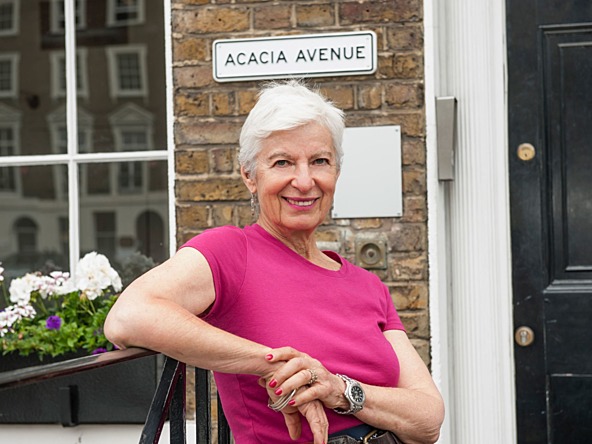Obituary: Wendy Gordon

On Wednesday 15th November, the market research industry lost one of its most pioneering and dynamic members, when Wendy Gordon passed away. In a career that spanned over five decades, what she did was a fundamental part of forging and shaping the practice of qualitative market research in the UK and across the world.
Born in 1942, Wendy came to the UK from South Africa in the late 1960s, having graduated in psychology and social anthropology before emigrating. Having met and briefly worked with Bill Schlackman, one of the great founding fathers of qualitative research, in the early 1960s, Wendy’s love of research grew from stints at both JWT and Market Research Africa, before joining Schlackman in the UK permanently. He was hugely influential in helping Wendy build on her pre-existing fascination with understanding people, by giving her the professional and commercial skills to go on and build her own subsequent career.
By the 1980s, qualitative research was starting to become more established, alongside the growing field of advertising planning – Wendy quickly found her niche. She formed agency Quick-Search (later Q-Search), under Schlackman, alongside Colleen Ryan, and they then branched out to create the Research Business, later known as TRBI.
In that era, qualitative research, still a young industry, had more than a hint of the wild west about it. Many new companies emerged, it was highly competitive, there were few women in business and swashbucklers tended to thrive. Enter Wendy Gordon. TRBI set about professionalising research and was soon the biggest in the industry. Wendy had earned her reputation as a fearsome leader.
But if that was Wendy’s public persona as a businessperson, the deeper reality about her was in her intellectual adventure and rigour. She was more of an anthropologist than a researcher, breaking disciplinary borders and venturing off in any direction that was intellectually challenging and useful, whether that was economics, neuroscience, social science, or more recently behavioural science, where Wendy’s awareness of cognitive advances was well over a decade ahead of the mainstream.
And yet despite not being constrained by research, she was a true citizen of the industry, with time on the boards of both the MRS and the AQR. She drove the industry forwards, challenging, debating, and driving new thinking through courses, award-winning papers and close relationships with the global research, planner and client communities. In 1997, she was named a fellow by the Market Research Society, as part of its inaugural fellowship list. She was a visiting professor at the Birmingham Business School and was one of the first researchers to earn a place in the Women’s Advertising Club of London (WACL). It was this sense of collaboration characterised her whole career.
Wendy published two books on qualitative practice – Qualitative Market Research in 1988 and Goodthinking in 1999 – followed by her finale, Mindframes, in 2016, which was about different lenses through which to think. It was these different ways of thinking that really formed the heart of her philosophy.
Since Wendy retired, her curiosity and energy never subsided. She became an accomplished potter and continued to question the world of market research vicariously through friends and ex-colleagues. She even suggested that ChatGPT write her obituary.
In common with most people that leave an indelible mark, her character was multi-faceted. She could be fierce, resolute, combative and unstoppable. But she could also be generous, loyal, forgiving and kind. She believed in giving people their shot, including co-forming Acacia Avenue with three partners, two of whom had no experience in research. The unifying qualities that everyone saw were her bravery and restlessness.
Her self-stated mission, when writing her paper Darkroom of the Mind for the AQR/QRCA joint annual conference in 2001, was ‘to inspire people to embrace the possibility of thinking completely differently’. Her legacy is immense – we can confidently say she achieved her mission. And for that, we all owe her our gratitude.
An event to celebrate and honour Wendy’s life will be hosted by Acacia Avenue in early 2024. Details to follow.

We hope you enjoyed this article.
Research Live is published by MRS.
The Market Research Society (MRS) exists to promote and protect the research sector, showcasing how research delivers impact for businesses and government.
Members of MRS enjoy many benefits including tailoured policy guidance, discounts on training and conferences, and access to member-only content.
For example, there's an archive of winning case studies from over a decade of MRS Awards.
Find out more about the benefits of joining MRS here.












2 Comments
Neil Higgs
2 years ago | 1 like
This is very sad news indeed. A true icon
Like Reply Report
Tim Barber
2 years ago
Sad news. I'm much more quant-focused than qual, but I remember that when I entered the industry her book with Roy Langmaid was very much seen as the Bible of how to do qualitative research.
Like Reply Report